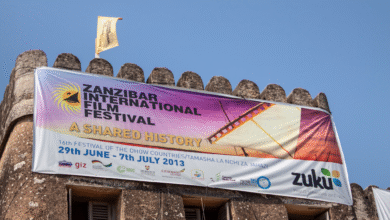Tunisia : The Dot Landing, the incubator attracting Tunisian diaspora entrepreneurs
The Dot, Digital Innovation Hub in Tunisia, launches the free "Landing" offer dedicated to entrepreneurs from the diaspora in Europe. A targeted program, half-funded by Meet Africa (Expertise France) and the Ile de France region.

By Mérième Alaoui, in Paris
Just before the summer, the organizers gathered at the Maison de la Tunisie in Paris for their second information meeting. « These entrepreneurs have left the country to study or have never lived there. Our role is to inform them about what’s happening in the country, » explains Asma Chebbi, coordinator of Dot Landing pilot program, launched last May for a two-year period. Several dozen Tunisian officials, investors, entrepreneurs and the simply curious, mainly from the Paris region, attended. The theme of the day: « Tech startups, a real Eldorado in Tunisia and beyond in Africa. What are the current financing mechanisms? What are the growth sectors? And what about the new Startup Act 2?
So many questions were asked, but all with the same aim: to bring the Tunisian startup ecosystem closer to its diaspora.
« The aim is not only to provide information, but also to detail the various key resources on offer. It starts with a catalogue of service providers recommended by the community, » adds the coordinator. The other main component is assistance and support through expertise, legal advice, tax, accounting and, above all, personalized support.
Finally, for the most advanced projects, Dot Landing hosts the young company free of charge for 4 months, with access to Tunisian services on the spot. « Being on the ground is the best way to create synergies and expand the network, but also, and probably above all, to test the Tunisian market, » says Asma Chebbi.
The diaspora comprises 1.7 million nationals, or 14.7% of the total population. One in ten Tunisian expats (9.8%) say they have invested in Tunisia.
For a country that is small in terms of population (12 million inhabitants), the diaspora of 1.7 million nationals, i.e. 14.7% of the total population, is very important. With 83.3% living in Europe, half of them in France, it is a young population. For example, 34% are aged between 30 and 39. “A hotbed of expertise, networks and opportunities, with significant potential, especially for tech startups,” Assma Chebbi sums up.
In her view, this is very important human capital. « It can become a startup partner or even a public partner through institutional cooperation. The diaspora must be seen as a full and powerful player in political, social and economic life, » she said.
A wooed diaspora that is already very entrepreneurial. One Tunisian expatriate in ten claims to have invested in Tunisia, i.e. 9.8% (44.4% in construction, 29.8% in real estate, 14.8% in agriculture, 6.7% in commerce and 3.8% in industry).
Diaspora remittances represent 6% of Tunisia’s GDP. In 2021, they will reach TND 8,618 million, according to the Central Bank of Tunisia (BCT).
Tunisia’s other strength is the quality of its human resources. Tunisia has a wealth of expertise, with more than 10,000 university graduates. The ICT sector is expected to generate a turnover of $4 billion by 2020/2021, with 2,500 companies and 120,000 jobs. A sector that will benefit from a new vision with the 2023-2025 development plan, reveals Wissem El Mekki, director of the digital economy at the Ministry of Communication Technologies.
Our fund of funds (ANAVIA) has a target size of €100 million and aims to invest in more than 13 investment funds dedicated to startups
On the panel, Hasna Kourda, recent winner of the LVMH Innovation Award, confirms this. « I’ve always wanted to work in my country, and although my startup was born in the UK, about thirty of our 40 technicians are in Tunisia, » recalls the creator of Save Your Wardrobe, a digital wardrobe management platform.
Whether they are already on the market or not, entrepreneurs are waiting for more data on investment, which remains the most sensitive issue. To increase the number of players, Smart Capital is financing funds as well as startups. « Our fund of funds (ANAVIA) has a target size of €100 million and aims to invest in more than 13 investment funds dedicated to startups, » explains Fares Saidi, Head of Investments at Smart Capital. Smart capital is responsible for managing the national Startup Tunisia program. This project has three components, one of which is the famous Startup Act.
This is the legal framework for the identification of startups created or established in Tunisia. An obligatory step guaranteed by the ecosystem’s founding law. Its new version, Startup Act 2, is still awaited. There is a first draft, but it’s not ready yet, » says Wissem El Makki. We’re dealing with a lot of details in this transversal law, which makes it difficult to adopt ».
Startup Act 2 is eagerly awaited in Tunisia and beyond in Africa. Indeed, pioneer Tunisia remains the benchmark for all other states on the continent that have modelled their system.
« If you look at the original text (promulgated in 2019), the Start Up Act was designed to make Tunisia a hub, but our first thought was the diaspora, » recalls the director of the digital economy at the Ministry of Communication Technologies. « But while we are interested in the diaspora, there are no specific features reserved for this population. We address all Tunisians in the same way, » adds Fares Saidi.
Startup Act 2 is eagerly awaited in Tunisia and even beyond, in Africa. Indeed, Tunisia, a pioneer country in this area, remains the benchmark for all other countries on the continent that have modelled their systems on ours. Pending legislative progress, applications to join Dot Landing are open and will remain so throughout the two years of the program, being processed « as we go along », explains Asma Chebbi. « The leading sectors are obviously technology, with a very strong interest in AI. Ideas that can help solve Tunisian problems using AI are particularly welcome ».
Find out more : The Dot Landing







